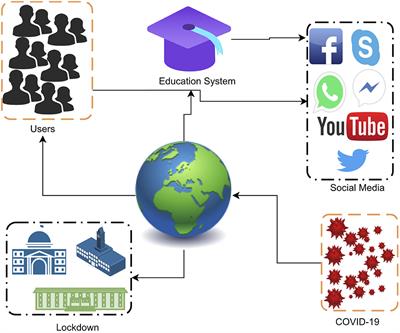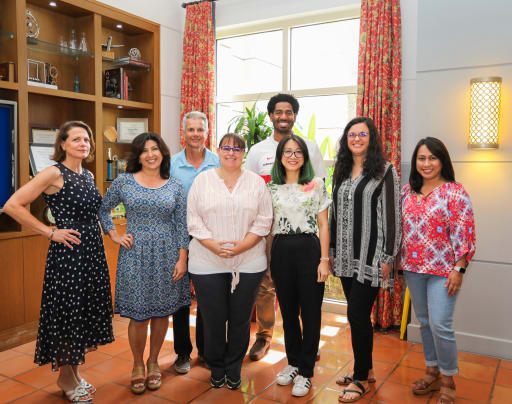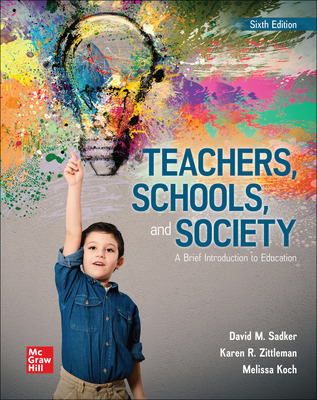Table of Contents
Education forms the cornerstone of every thriving society and at the heart of education are the dedicated individuals known as teachers. They play a pivotal role in shaping the minds of future generations, imparting knowledge, instilling values and nurturing the potential of every student. In this article, we explore the multifaceted role of teachers in society, highlighting their profound impact on individuals and the broader community.
Education is not merely a process; it’s the bedrock upon which thriving societies are built. Central to this process are the unsung heroes known as teachers, whose influence extends far beyond the walls of the classroom. They are the architects of the future, shaping young minds, molding characters and igniting the flames of curiosity and creativity.
Teachers are more than just conveyors of facts; they are mentors, guides and inspirations. Their classrooms are incubators where dreams take shape, where potential is realized and where the seeds of knowledge are sown. Through their unwavering dedication, teachers empower students to reach for the stars, equipping them with the tools they need to navigate an ever-changing world.
Beyond academics, teachers are character builders. They instill values of integrity, empathy and resilience, nurturing not only bright minds but also good hearts. In doing so, they contribute to the formation of responsible citizens who are not only knowledgeable but also compassionate and socially aware.
In this article, we embark on a journey to unravel the multifaceted role of teachers in society. We delve into their immense impact on the individual level, where they spark intellectual curiosity, boost self-esteem and provide crucial guidance during critical developmental stages. The teacher-student relationship is often a lifelong source of inspiration and mentorship.
Moreover, we explore how teachers are the cornerstone of societal progress. Their work ripples through communities, influencing cultural norms, shaping economies and contributing to the overall well-being of a nation. The quality of education directly impacts a society’s future and teachers hold the key to unlocking the potential of generations to come.
As we celebrate the tireless dedication of educators, it is essential to recognize the challenges they face. From adapting to new teaching methods in the digital age to addressing the diverse needs of students, teachers continually evolve to meet the demands of an ever-changing world.
In essence, teachers are the unsung heroes who bridge the gap between the present and the future. Their influence transcends time and space, leaving an indelible mark on the hearts and minds of those they touch. They are the true architects of progress, nurturing the potential within each student and, in doing so, shaping a brighter, more promising tomorrow.
Should you desire more in-depth information, it’s available for your perusal on this page: Ex Corde Ecclesiae (August 15, 1990) | John Paul II
Knowledge Dissemination
Teachers are the bearers of knowledge, serving as conduits through which information and wisdom are passed down. They introduce students to a wide array of subjects, from mathematics and science to literature and the arts, equipping them with a broad foundation upon which to build their futures.
Teachers are the linchpin in the transfer of knowledge from one generation to the next and their role extends far beyond the mere transmission of facts and figures. They are the architects of a well-rounded education, building a scaffold upon which students construct their understanding of the world.
Nurturing Curiosity: Teachers not only provide information but also ignite the flames of curiosity within their students. They encourage questions, exploration and a thirst for knowledge that goes beyond textbooks. In doing so, they foster an intrinsic love for learning that goes beyond the classroom.
Cultivating Critical Thinking: Beyond the content of their subjects, teachers teach students how to think critically. They help students develop analytical skills, enabling them to dissect complex problems, evaluate evidence and arrive at well-informed conclusions. This ability is invaluable in an era where information is abundant and discernment is key.
Promoting Creativity: In addition to academic subjects, teachers often play a vital role in nurturing creativity and self-expression. Through subjects like literature, art and music, they provide students with the tools to communicate, innovate and express themselves in unique ways. These creative outlets can shape students’ identities and open doors to new possibilities.
Instilling Lifelong Learning: Great teachers instill in their students the idea that learning is a lifelong endeavor. They demonstrate that knowledge is not static but evolves with time, encouraging students to stay curious, adapt to change and embrace continuous self-improvement throughout their lives.
Cultural and Historical Context: Teachers provide the cultural and historical context that enriches students’ understanding of the world. They introduce the stories, traditions and experiences of diverse cultures, fostering empathy, tolerance and a global perspective.
Moral and Ethical Compass: Teachers also have a role in shaping students’ moral and ethical compasses. By modeling and promoting values such as honesty, respect, empathy and responsibility, they prepare students not only for academic success but also for a life guided by principles of integrity and compassion.
In essence, teachers are not just conveyors of information; they are cultivators of intellect, character and lifelong learners. Their impact extends far beyond the classroom walls, influencing the trajectory of their students’ lives and, in turn, the future of society. Teachers are indeed the bearers of knowledge, but they are also the architects of a brighter, more enlightened world.
Explore this link for a more extensive examination of the topic: Opinion Paper: “So what if ChatGPT wrote it?” Multidisciplinary …

Fostering Critical Thinking
Beyond facts and figures, teachers encourage critical thinking and problem-solving skills. They challenge students to analyze, question and evaluate information, preparing them to navigate an increasingly complex and information-rich world.
Beyond the dissemination of mere facts and figures, educators play a pivotal role in nurturing the intellectual growth of their students. At the heart of this educational journey lies the cultivation of critical thinking and problem-solving skills, qualities that are indispensable in today’s rapidly evolving and information-driven world.
Teachers are not just conduits of information; they are mentors who guide students towards a deeper understanding of the subjects they teach. Through thought-provoking discussions, interactive exercises and challenging assignments, educators inspire curiosity and ignite the flames of intellectual inquiry. They empower students to look beyond the surface and dig deeper, encouraging them to question the status quo, challenge assumptions and explore uncharted territories of knowledge.
In an era characterized by an abundance of information, the ability to discern reliable sources from misinformation is a crucial skill. Teachers equip students with the tools to critically evaluate information, teaching them to be discerning consumers of knowledge. They instill in their students a sense of skepticism, encouraging them to approach information with a critical eye and seek evidence-based truths.
Problem-solving, another cornerstone of education, transcends the boundaries of the classroom. Teachers create a nurturing environment where students can tackle complex problems, applying the knowledge and skills they’ve acquired to real-world challenges. This not only prepares students for the workforce but also fosters a sense of empowerment and self-efficacy. They learn that they have the capacity to make a positive impact on the world through their problem-solving abilities.
Moreover, the skills of critical thinking and problem-solving extend far beyond the confines of specific subjects or disciplines. They are life skills that shape individuals into informed and responsible citizens. In a world grappling with multifaceted issues like climate change, global health crises and social inequalities, these skills enable students to engage meaningfully with the complexities of our time. They become active participants in finding innovative solutions to pressing global challenges.
In conclusion, teachers are not just educators; they are architects of future generations. They mold young minds, not merely to absorb information, but to thrive in a world defined by change and complexity. By fostering critical thinking and problem-solving skills, educators empower students to be lifelong learners, agile thinkers and active contributors to a world that demands both knowledge and wisdom. As we celebrate the profound impact of teachers, we acknowledge that their influence extends far beyond the classroom, shaping the leaders, innovators and problem solvers of tomorrow.
Looking for more insights? You’ll find them right here in our extended coverage: Emphasizing Morals, Values, Ethics, And Character Education In …

Moral and Ethical Guidance
Teachers play a crucial role in imparting values and ethics. They model good behavior, promote empathy and respect and help students develop a sense of social responsibility. In doing so, they contribute to the formation of responsible and compassionate citizens.
Teachers are not just purveyors of knowledge; they are the architects of character and the custodians of values. Their influence extends far beyond the classroom, as they mold the hearts and minds of the next generation. Here’s how teachers play a pivotal role in shaping responsible and compassionate citizens:
Modeling Good Behavior: Teachers serve as role models for their students. Through their actions, attitudes and interactions, they exemplify the values of honesty, integrity and kindness. These subtle but powerful demonstrations of good behavior leave an indelible imprint on young minds, inspiring students to emulate these virtues in their own lives.
Promoting Empathy and Respect: Teachers foster empathy by encouraging students to see the world through the eyes of others. Through literature, discussions and real-life scenarios, they teach the importance of understanding and valuing diverse perspectives. This cultivates empathy and promotes a deep sense of respect for people from all walks of life.
Nurturing Critical Thinking: Teachers instill in their students the critical thinking skills necessary to discern right from wrong. They encourage open dialogue, the exploration of ethical dilemmas and the examination of moral values. This equips students with the ability to make informed, ethical decisions in their lives.
Teaching Social Responsibility: Teachers emphasize the concept of social responsibility, teaching students that their actions have consequences not only for themselves but for their communities and the world at large. They encourage students to actively engage in community service and advocate for positive change, instilling a sense of duty to make the world a better place.
Fostering Inclusivity: In today’s diverse and interconnected world, teachers emphasize inclusivity and celebrate differences. They create classrooms where every student feels valued and respected, regardless of their background, abilities or beliefs. This fosters a sense of belonging and encourages students to carry these inclusive attitudes into the wider society.
Encouraging Character Development: Teachers recognize that education extends beyond academics. They place a strong emphasis on character development, emphasizing traits like resilience, perseverance and self-discipline. These qualities not only contribute to personal success but also to the development of responsible citizens who can navigate life’s challenges with grace and determination.
Nourishing Moral Imagination: Through literature, art and storytelling, teachers nourish the moral imagination of their students. They expose them to tales of heroism, sacrifice and moral dilemmas that inspire reflection and ethical growth. These stories ignite the imagination and encourage students to aspire to higher moral standards.
Building a Foundation for Lifelong Learning: Ultimately, teachers instill in their students a love for learning, not just about subjects and facts but about life itself. They encourage curiosity, a hunger for knowledge and a commitment to continuous self-improvement. This thirst for learning is a cornerstone of responsible citizenship, as it fuels engagement with the world and a commitment to staying informed and engaged.
In sum, teachers are the architects of a brighter, more compassionate future. They impart values, cultivate empathy and nurture social responsibility, laying the foundation for the development of responsible and compassionate citizens. Their influence is immeasurable, shaping the moral compass of society one classroom at a time and paving the way for a more just, ethical and harmonious world.
To delve further into this matter, we encourage you to check out the additional resources provided here: Connecting to the Heart: Teaching Value-Based Professional Ethics …

Individualized Support
Recognizing that each student is unique, teachers provide individualized support and guidance. They identify strengths and weaknesses, offering tailored assistance to help every student reach their full potential.
In the realm of education, the understanding that every student is a unique individual with distinct needs and abilities serves as the cornerstone of effective teaching. Teachers, armed with this insight, embark on a noble journey of guiding and nurturing their students towards realizing their full potential. This approach goes beyond a one-size-fits-all model; it’s about recognizing the diverse learning styles, strengths and weaknesses that each student brings to the classroom.
To truly unlock a student’s potential, teachers adopt a multifaceted approach. They carefully assess their students’ academic and emotional landscapes, identifying areas where they excel and those where they may struggle. This insightful evaluation lays the foundation for individualized support and targeted interventions.
For students who excel in specific subjects or exhibit particular talents, teachers offer advanced coursework or additional challenges to keep them engaged and motivated. This personalized enrichment ensures that gifted students are continuously stimulated and encouraged to stretch their intellectual boundaries.
Conversely, for students who face difficulties or challenges in their learning journey, teachers provide a nurturing environment where they can thrive. Specialized support, such as tutoring, additional resources or alternative teaching methods, helps these students overcome obstacles and build confidence in their abilities.
Moreover, teachers also serve as mentors and role models, guiding students not just academically but also in developing essential life skills. They impart values like perseverance, critical thinking and empathy, instilling in students the resilience they need to face the inevitable challenges that life presents.
Beyond academic guidance, teachers foster emotional intelligence and social skills, recognizing that personal development is a vital aspect of education. They create a safe and inclusive atmosphere where students can express themselves, share their thoughts and learn to work collaboratively with their peers. These interpersonal skills are invaluable assets that will serve students well throughout their lives.
In today’s educational landscape, technology is a powerful ally in personalizing learning experiences. Online tools and adaptive software can tailor educational content to match a student’s unique pace and level of comprehension, providing instant feedback and targeted exercises to address weaknesses and build on strengths.
In conclusion, the dedication of teachers to providing individualized support and guidance to their students is a testament to their commitment to education. It’s a recognition that every student has a distinct path to success and it’s the teacher’s role to illuminate that path, offering support, encouragement and resources to help each student reach their full potential. In this personalized approach, education becomes a transformative journey, empowering each student to become the best version of themselves, equipped not only with knowledge but with the skills and confidence to thrive in a complex and dynamic world.
If you’d like to dive deeper into this subject, there’s more to discover on this page: Disabilities Inclusive Education Systems and Policies Guide for Low …

Mentors and Role Models
Teachers often serve as mentors and role models. Through their passion for teaching and dedication to their subjects, they inspire students to explore their interests and pursue their aspirations.
Teachers play a multifaceted role in the lives of their students, extending far beyond the boundaries of the classroom. Their impact is profound, shaping not only academic journeys but also personal growth and character development. Let’s delve deeper into the ways in which teachers serve as mentors and role models, leaving a lasting imprint on the lives of those they teach:
Fostering a Love for Learning: Effective teachers ignite a spark of curiosity and passion for learning within their students. By conveying their own enthusiasm for the subjects they teach, they inspire a thirst for knowledge that extends far beyond the classroom. This lifelong love for learning becomes a valuable asset, propelling students to explore diverse interests and tackle new challenges with zeal.
Encouraging Critical Thinking: Teachers empower students to think critically and independently. By presenting thought-provoking questions, encouraging debates and nurturing an environment where curiosity is celebrated, they instill the invaluable skill of critical thinking. This skill becomes an enduring foundation for making informed decisions and solving complex problems in various aspects of life.
Guiding Personal Development: Beyond academic growth, teachers serve as guides in the journey of personal development. They offer advice, lend a compassionate ear and provide constructive feedback that helps students build self-confidence, resilience and a strong sense of self. These qualities become indispensable as students navigate the challenges of adulthood.
Modeling Integrity and Values: Teachers exemplify ethical conduct and values in their interactions with students. Through their actions, they demonstrate the importance of honesty, empathy and respect. These ethical lessons extend beyond the classroom, shaping students into responsible, compassionate and ethical individuals.
Nurturing Aspirations: Teachers often recognize the unique talents and potential of their students. By offering guidance, mentorship and support, they help students identify their strengths and passions. This encouragement empowers students to set ambitious goals and work diligently toward achieving their dreams.
Promoting Resilience: Teachers teach not only content but also the value of perseverance. They understand that setbacks and failures are essential components of the learning process. Through their guidance, students learn to embrace challenges, bounce back from failures and develop the resilience needed to overcome life’s obstacles.
Building Lifelong Relationships: Many students form enduring relationships with their teachers that extend well beyond their time in school. These connections offer a source of guidance and support throughout their lives. Students often turn to their former teachers for advice, mentorship and inspiration even as they embark on their own professional journeys.
Inspiring Career Choices: Teachers can have a profound influence on students’ career choices. By nurturing interests and providing guidance, they help students identify their passions and potential career paths. Many individuals attribute their career choices to the encouragement and mentorship they received from a teacher.
In essence, teachers are not just educators; they are catalysts for personal and intellectual growth. Their influence transcends the classroom, shaping the values, aspirations and character of the individuals they teach. The enduring impact of a dedicated and inspiring teacher can be felt throughout a lifetime, reminding us of the transformative power of education and mentorship.
To expand your knowledge on this subject, make sure to read on at this location: A teacher: Our role-models, second parents and for the rest of our …

Igniting a Lifelong Love for Learning
A great teacher can ignite a lifelong love for learning. Their enthusiasm and commitment can spark curiosity and a thirst for knowledge that stays with students throughout their lives.
Indeed, the influence of a great teacher is akin to lighting a beacon of lifelong learning. Their impact extends far beyond the classroom, shaping the intellectual and personal growth of their students in profound ways. Let’s delve deeper into how a dedicated and inspiring educator can kindle the flames of curiosity and instill a lifelong love for learning.
Fostering a Growth Mindset: Great teachers cultivate a growth mindset in their students. They emphasize that intelligence and skills can be developed through effort and perseverance. This mindset shift encourages students to embrace challenges, view failures as opportunities for growth and maintain an unwavering belief in their capacity to learn and improve.
Creating a Nurturing Environment: A great teacher establishes a classroom environment where students feel safe, valued and respected. This emotional safety net allows students to take risks, ask questions and explore their intellectual boundaries without fear of judgment. Such an environment nurtures self-confidence and a love for learning.
Passion and Enthusiasm: Enthusiasm is contagious and great teachers radiate it. Their passion for their subject matter and genuine love for teaching inspire students to approach their studies with excitement. This infectious enthusiasm can be a catalyst for students to delve deeper into subjects and discover their own passions.
Tailoring Instruction: Exceptional educators recognize that each student is unique. They adapt their teaching methods to cater to individual learning styles and needs, ensuring that every student has the opportunity to succeed. This personalized approach fosters a sense of empowerment and engagement in the learning process.
Encouraging Critical Thinking: Great teachers encourage students to question, analyze and think critically. They pose thought-provoking questions, guide discussions and challenge students to consider multiple perspectives. This cultivation of critical thinking skills equips students to navigate the complexities of the world beyond the classroom.
Instilling a Love for Reading: Reading is a gateway to knowledge and lifelong learning. Exceptional teachers instill a love for reading by introducing students to captivating literature, fostering a reading culture and helping students discover the joy of exploring new worlds through books.
Modeling Lifelong Learning: The most effective way to teach a love for learning is to embody it. Great teachers are themselves lifelong learners, demonstrating that the journey of acquiring knowledge is ongoing and rewarding. This modeling encourages students to view learning as a lifelong pursuit rather than a task confined to formal education.
Empowering Self-Directed Learning: Exceptional educators teach their students how to learn, equipping them with valuable study skills, research abilities and self-motivation. This empowers students to take ownership of their education and continue learning independently long after their time in the classroom.
Making Learning Relevant: Great teachers connect classroom lessons to real-life applications, demonstrating the practical value of knowledge. By showing how what students learn can be applied in their daily lives and future careers, teachers instill a sense of purpose and motivation to continue learning.
In essence, a great teacher is a catalyst for a lifelong journey of discovery and intellectual growth. Their impact extends far beyond the confines of a school year, shaping the way students perceive and engage with the world. By nurturing curiosity, instilling a love for learning and equipping students with the skills and mindset to embrace lifelong learning, great educators leave an indelible mark that lasts a lifetime.
Explore this link for a more extensive examination of the topic: Part- 2 Intrinsic Rewards: Teaching from the Heart for the Love of …

Building Confidence
Teachers have the power to boost students’ self-confidence. By recognizing and praising their achievements, they instill a sense of self-worth and the belief that students can overcome challenges and achieve their goals.
Teachers, as educators and mentors, wield a profound influence on the lives of their students, extending far beyond the classroom. One of their most potent tools is the ability to nurture and elevate students’ self-confidence, a gift that can have a lasting impact on their personal and academic journeys.
The cultivation of self-confidence begins with acknowledgment and recognition. When teachers take the time to celebrate students’ achievements, whether big or small, they send a powerful message that their efforts are valued and their potential is recognized. This recognition is more than just praise; it is a vote of confidence that can spark a transformative shift in students’ self-perception.
Moreover, this positive reinforcement nurtures a sense of self-worth, laying the foundation for healthy self-esteem. Students start to believe in their abilities and their capacity to tackle challenges. This burgeoning self-belief becomes a formidable asset as they encounter obstacles on their educational path.
Self-confidence instilled by teachers equips students with the resilience to confront academic difficulties and setbacks. When they encounter a challenging subject or face academic hurdles, their belief in their abilities becomes a source of motivation and determination. They no longer view obstacles as insurmountable; instead, they see them as opportunities for growth and learning.
Beyond academics, this boost in self-confidence has ripple effects on students’ overall well-being. It fosters a positive self-image, empowering them to navigate social situations with greater ease and grace. They become more willing to participate in class discussions, share their ideas and engage with their peers, enriching their learning experience and interpersonal skills.
Ultimately, teachers who nurture self-confidence in their students are not just imparting knowledge; they are fostering the development of resilient, empowered individuals. These students are better equipped to face the challenges of both the classroom and life with courage, determination and a belief in their own potential. In this way, teachers become not only educators but also architects of self-belief, shaping the future of their students one act of recognition and encouragement at a time.
Looking for more insights? You’ll find them right here in our extended coverage: The Heart of Teaching and the Qualities of a Great Teacher | Edutopia

Shaping the Future
Teachers mold the future by nurturing young minds. The knowledge, values and skills they impart today will influence the leaders, innovators and problem solvers of tomorrow.
Teachers are the architects of the future, crafting the foundation upon which our society rests. Their influence extends far beyond the classroom, as they play a pivotal role in shaping the character, intellect and aspirations of the next generation. The profound impact of teachers on society and the individuals they educate can be further understood through these key aspects:
Knowledge Dissemination: Teachers are the conduits through which knowledge flows from one generation to the next. They impart a wealth of information across various subjects, helping students develop a strong academic foundation. This knowledge equips students with the tools they need to succeed in an increasingly complex and interconnected world.
Fostering Critical Thinking: Beyond facts and figures, teachers instill the art of critical thinking. They encourage students to question, analyze and evaluate information, fostering intellectual curiosity and a lifelong love of learning. This skill is indispensable in navigating the complexities of the modern world.
Values and Morality: Teachers serve as moral compasses, guiding students toward ethical and principled behavior. Through their own actions and teachings, educators help students develop values such as empathy, integrity and respect for others. These values, instilled early in life, shape the character of future leaders and citizens.
Inspiration and Aspiration: Teachers inspire students to dream big and aim high. They introduce students to the vast array of possibilities that lie ahead, instilling a sense of ambition and self-belief. Many successful individuals attribute their achievements to a teacher who believed in them and encouraged them to pursue their passions.
Cultural Preservation and Diversity: Teachers celebrate cultural diversity and promote understanding among students from different backgrounds. They teach the value of cultural heritage and the importance of embracing diversity, fostering tolerance and global citizenship.
Innovation and Problem Solving: Teachers nurture creativity and problem-solving skills. They encourage students to think innovatively, fostering the development of future inventors, entrepreneurs and innovators who will tackle complex global challenges.
Leadership Development: Teachers identify and cultivate leadership qualities in their students. By providing opportunities for leadership roles, they empower young individuals to become effective leaders who can drive positive change in their communities and beyond.
Resilience and Adaptability: Teachers impart resilience by teaching students to persevere in the face of challenges. They prepare students for the ever-changing landscape of life, equipping them with the ability to adapt and thrive in a dynamic world.
Community Building: Teachers create a sense of community within their classrooms, teaching students the importance of collaboration, teamwork and empathy. These interpersonal skills are invaluable in building harmonious societies and workplaces.
Legacy of Learning: The influence of teachers endures through the generations. Students who are inspired by exceptional educators often become teachers themselves, passing on the torch of knowledge, values and skills to future generations, thereby perpetuating the cycle of learning and growth.
In essence, teachers are the architects of a brighter future, nurturing young minds and imbuing them with the knowledge, values and skills needed to navigate an ever-evolving world. Their impact transcends the boundaries of time, shaping the leaders, innovators and compassionate citizens who will guide society towards progress and prosperity. In this profound journey, teachers play a role that extends far beyond the confines of a classroom, molding the very essence of our collective future.
Looking for more insights? You’ll find them right here in our extended coverage: Why Are Teachers Important In Our Society? They Have Influence

Promoting Social Equity
Teachers can be powerful advocates for social equity. They have the ability to identify and address disparities in education, working to ensure that all students, regardless of their background, have access to quality learning opportunities.
Teachers are not just educators; they are also champions of social equity within the educational landscape. Their pivotal role extends beyond the classroom, as they serve as advocates for fairness, inclusivity and equal opportunities for all students, regardless of their socio-economic, cultural or ethnic backgrounds.
Identifying Disparities: Teachers are on the frontlines of education, giving them a unique vantage point to identify disparities among their students. They can recognize variations in academic performance, resource access and educational engagement. By pinpointing these inequalities, teachers can take the first step towards addressing them.
Tailoring Instruction: Effective teachers understand that each student is unique, with their own strengths and challenges. They are skilled at tailoring their instruction to meet the diverse needs of their students. This personalized approach ensures that every learner, regardless of their starting point, can progress and excel.
Promoting Inclusivity: Teachers foster an inclusive classroom culture where diversity is not just acknowledged but celebrated. They create an environment where students from all backgrounds feel valued, respected and free to express their perspectives. This inclusivity nurtures a sense of belonging, which is essential for academic success.
Advocating for Resources: Teachers are often advocates for additional resources that their students may require. They may lobby for improved facilities, better classroom materials or specialized support services for students with unique needs. Their advocacy helps level the playing field for underprivileged students.
Encouraging Parental Engagement: Teachers understand the crucial role that parents and caregivers play in a child’s education. They actively engage with families, bridging the gap between home and school. By fostering a strong partnership with parents, teachers can ensure that students receive support beyond the classroom.
Cultural Sensitivity: Teachers are trained to be culturally sensitive and aware. They appreciate the diversity of their students and are attuned to the cultural nuances that may affect learning. This cultural competence allows them to create a curriculum that reflects the experiences and backgrounds of their students.
Advocacy Beyond the Classroom: Teachers often extend their advocacy efforts beyond their classrooms. They may participate in professional development programs, collaborate with educational policymakers or join grassroots initiatives aimed at addressing systemic inequalities in education.
Promoting Lifelong Learning: Teachers instill a love of learning in their students, inspiring them to become lifelong learners. By nurturing curiosity and a growth mindset, teachers empower their students to overcome barriers and pursue education as a means of personal and societal advancement.
In summary, teachers wield immense influence in shaping the trajectory of their students’ lives. Their commitment to social equity in education is not just a noble endeavor; it is a fundamental component of their profession. By actively addressing disparities and advocating for inclusivity, teachers become catalysts for positive change, working tirelessly to ensure that every student has the opportunity to thrive and reach their full potential in a fair and just educational system.
To delve further into this matter, we encourage you to check out the additional resources provided here: Valuing Diversity: Developing a Deeper Understanding of All Young …

Community Builders
Beyond the classroom, teachers contribute to building strong and vibrant communities. They forge connections among students, parents and the broader community, fostering a sense of belonging and shared purpose.
Indeed, teachers are not just educators within the confines of a classroom; they are architects of strong and vibrant communities. Their impact extends far beyond textbooks and lesson plans as they play a pivotal role in connecting the various threads of society, weaving a tapestry of belonging and shared purpose.
Teachers serve as the linchpin that unites students, parents and the broader community. In the classroom, they create an environment where diverse individuals come together to learn, collaborate and grow. Through their guidance and mentorship, students not only acquire knowledge but also develop essential life skills such as empathy, communication and teamwork. These skills are not confined to the classroom but ripple out into the community, where they shape the character of future citizens and leaders.
Teachers are conduits of knowledge and values, imparting not just facts but also the importance of ethics, tolerance and civic responsibility. In doing so, they instill in their students a sense of belonging to a larger community, whether it be a neighborhood, a city or even a global society. This understanding of interconnectedness is a vital component of building strong and inclusive communities.
Furthermore, teachers often serve as bridges between parents and their children’s educational journey. They facilitate communication, provide insights and offer support to parents who are deeply invested in their children’s education. Through this collaboration, a sense of unity and shared purpose is nurtured, with parents and teachers working together to ensure the success and well-being of the students.
Teachers also frequently engage in community outreach, volunteering their time and expertise to various initiatives and organizations. This involvement extends their impact beyond the school gates, addressing broader community needs and challenges. Their dedication to community service not only sets a positive example for their students but also strengthens the bonds between the school and the community it serves.
In conclusion, teachers are not just educators; they are the heart and soul of communities. They foster connections, inspire a sense of belonging and nurture shared values and aspirations. Their role extends beyond the classroom, shaping the future by molding responsible, empathetic citizens who are deeply connected to and engaged in building strong and vibrant communities.
Additionally, you can find further information on this topic by visiting this page: Benefits of Community Involvement in Early Childhood – Child …

Teachers are the unsung heroes of society, playing a multifaceted and indispensable role in shaping the present and future. They are not only educators but also mentors, role models and agents of change. Their dedication to nurturing the potential of each student and their commitment to fostering a love for learning create a positive ripple effect that extends far beyond the classroom.
As we celebrate the vital role of teachers in society, it is crucial to recognize their contributions and provide them with the support, resources and appreciation they deserve. By doing so, we empower them to continue their invaluable work of guiding, inspiring and shaping the hearts and minds of the next generation, ensuring a brighter future for us all.
Don’t stop here; you can continue your exploration by following this link for more details: Understanding the World Through Math | Asia Society
More links
Additionally, you can find further information on this topic by visiting this page: The Heart Of Education Awards | The Official Site
